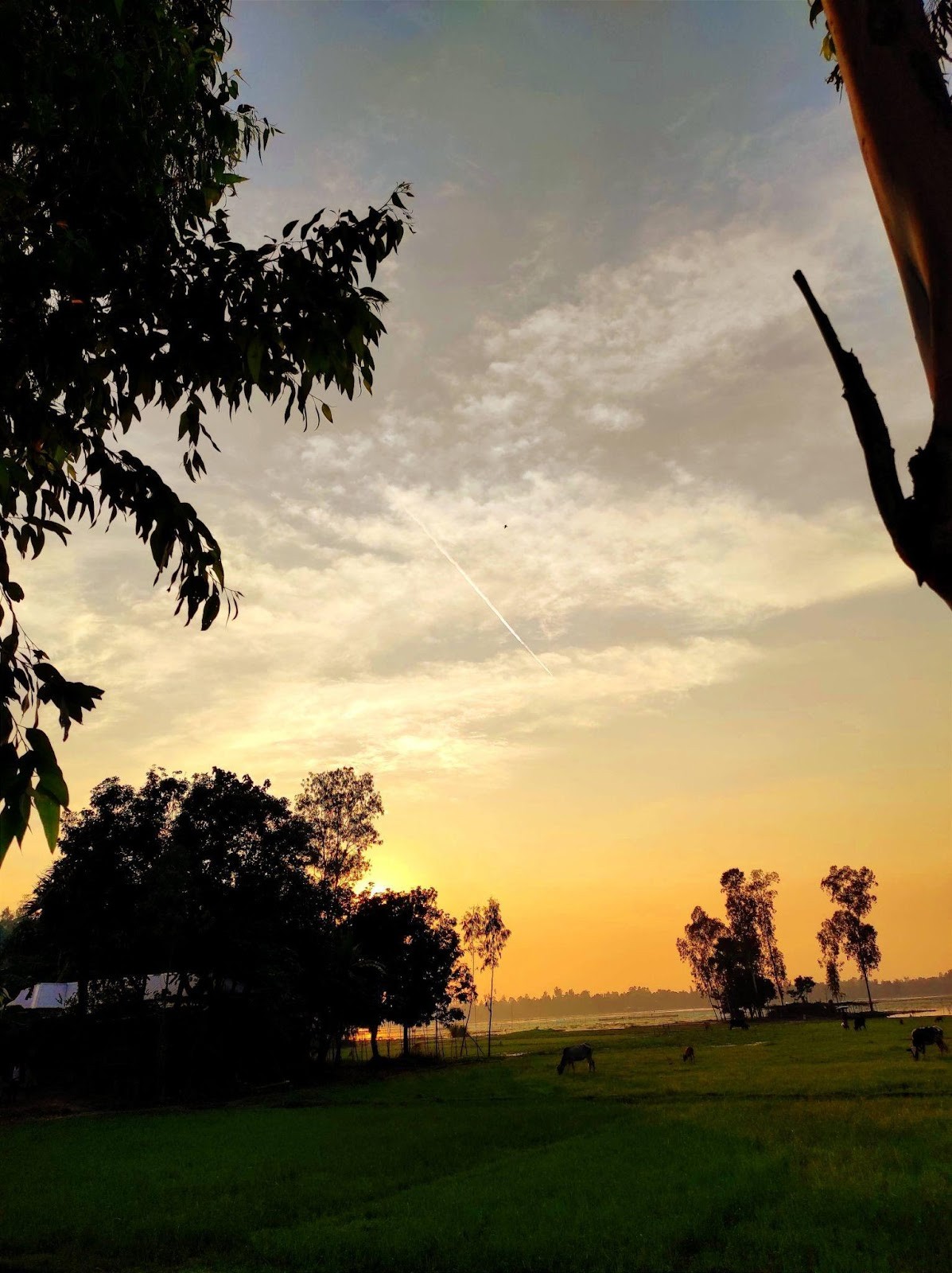Sanzida Alam
The sun hung low in the sky, casting a golden hue over the familiar pathway that led me to the river. The river’s surface, once dancing with many waves, causing water to splash against the shore and sweeping water hyacinths from one end to the other, now sits still and calm. As I reached the riverbank, I found myself drawn deeper into the wave of the past. Where once stood a lush grove of mango trees is now filled with barren fields where people have cultivated summer crops. It’s not the same landscape that had been part of my childhood and the countless summers spent in my grandmother’s house.
In my mind’s eye, I could see the mango trees standing tall and proud, their branches heavy with fruits. It was beneath the shade of these mango trees where my friends and I spent most of our time, playing traditional Bangali games like Kutkut (also known as kitkit or Ekka-Dokka), Raja-chor-mantri-sipahi, Ayanga-ayanga, Elating Belating, Gollachut, Kumir danga, and Kanamachi until the sun stripped down below the horizon.
When the wind whispered of impending rain, my friends and I would stand beneath the trees, with a bag, waiting eagerly for the ripe mangoes to fall. Sometimes, we would pluck the fresh mangoes from the branches, their juice running down our chins as we completed to fill our bags. The one with the most amount of mangos in their bag would usually get the upper hand in the upcoming game or would avoid penalty, as penalties during the game were the scariest thing back in that time.
If I were, to be honest, the mangos that we collected from the mango garden, as if our life depended on it, were consistently sour, ripe yet tangy, perhaps owing to their specific variety. They were so tart that my cousin and I would never dare to eat them raw. However, my grandmother, in her youthful vigor, would transform these sour mangoes into a delightful treat known as Aamshotto (fruit leather made out of mango pulp mixed with concentrated sugar solution and sun-dried). She would store these Aamshotto in big jars and pack them for me on my way back to Dhaka.
But as the years passed, so too did the innocence of the youth. Summer vacations that were once filled with endless days beneath the sun, collecting those tangy mangos became periods of catching up on school syllabi ahead of time. As time passed, the frequency of my visits to my grandmother’s house also decreased, stretching to intervals of two or three years. The once-familiar faces of my friends grew distant as life pulled us in separate directions. The yearly reunions became occasional and infrequent until they eventually ceased altogether.
The spirited child that I was back then, who would roam around freely and disturb the whole village, now finds solace in the comforting cocoon of my grandmother’s house. I can’t help my wonder if growing up was meant to feel like this. Now and then, I find myself yearning for a chance to turn back the hands of time.
Would I revisit those pleasant days beneath the mango trees?
- Without a doubt!
Would I relish the opportunity to play in the fields once more?
- Absolutely!
And if I were granted the gift of returning to my childhood companions and embracing them tightly and expressing my longing?
- Undoubtedly!
Would I eat those sour mangoes from those mango trees?
- Without hesitation!

